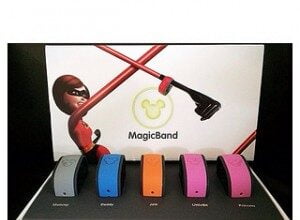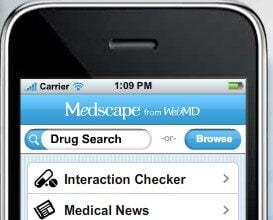 Melissa McCormack, a medical researcher with EHR consultancy group Software Advice, medical practice management BuyerView research, which found that 63% of the buyers were repl
Melissa McCormack, a medical researcher with EHR consultancy group Software Advice, medical practice management BuyerView research, which found that 63% of the buyers were repl
 Melissa McCormack, a medical researcher with EHR consultancy group Software Advice, medical practice management BuyerView research, which found that 63% of the buyers were replacing existing PM solutions, rather than making a first-time purchase. This mirrors the trend we’ve seen across medical software purchasing, where the HITECH Act may have prompted hasty first purchases of EHR solutions, followed by replacements 1-2 years later. For PM vendors, this means there’s a huge opportunity to market your products to practices as an upgrade, even if they’re already using PM software. I reached out to Melissa to ask her to elaborate on the implications of the trends she found in her recent research. Here’s some advice for vendors and solutions providers.
Melissa McCormack, a medical researcher with EHR consultancy group Software Advice, medical practice management BuyerView research, which found that 63% of the buyers were replacing existing PM solutions, rather than making a first-time purchase. This mirrors the trend we’ve seen across medical software purchasing, where the HITECH Act may have prompted hasty first purchases of EHR solutions, followed by replacements 1-2 years later. For PM vendors, this means there’s a huge opportunity to market your products to practices as an upgrade, even if they’re already using PM software. I reached out to Melissa to ask her to elaborate on the implications of the trends she found in her recent research. Here’s some advice for vendors and solutions providers.
1. As EHR meaningful use requirements grow more involved, standalone billing or scheduling systems are becoming less viable. In fact, nearly 70 percent of the buyers we spoke with wanted integration between practice management and EHR. The trend of PM buyers looking for robust EHR integration grows more pronounced each year, and shows no signs of tapering off since EHR meaningful use requirements increasingly require physicians to utilize charting, billing and scheduling in tandem. Vendors who can offer seamless integration between these applications will have a clear advantage over those who cannot.
2. Another regulatory pressure influencing PM software replacement is ICD-10. Compliance with the new code set is a major driver not only of practice management purchases in general, but specifically of replacements—25% of buyers replacing an existing solution cite a concern that their current solution wouldn’t support the code set switch. Despite the implementation deadline having been extended to October 2015, we’re seeing practices give a lot of thought to preparation, and they’re realizing the software they use will play a major role in their own readiness. Vendors who are confident in their ICD-10 readiness should take care to communicate that confidence to their existing users, as well as marketing it to prospective customers.
3. The medical practice management software buyers we talk to clearly prefer cloud-based systems. Among buyers with a preference, 88% want cloud deployment. We’re hearing from smaller practices that they value the low up-front costs, as well as not needing to maintain servers and dedicated IT staff. Additionally, buyers appreciate the remote access options afforded by cloud solutions. Some buyers even seem to conflate “cloud” with “remote access” and “mobile access” (even though those features aren’t unique to cloud-based products), suggesting these are the features of cloud-based software they are most concerned with. In fact, almost 20% of buyers identified mobile access as a top priority. Vendors who offer mobile support are at an advantage and should highlight their capabilities prominently.
4. Practice management software buyers come from diverse roles within practices. We saw clinicians and administrative staff represented almost equally—46% and 40%, respectively—among our buyer sample. Vendors should consider their audiences when marketing their products and tailor communication accordingly, giving equal weight to the unique benefits for clinicians and administrators.
EHR vendors: next move / shutterstock









